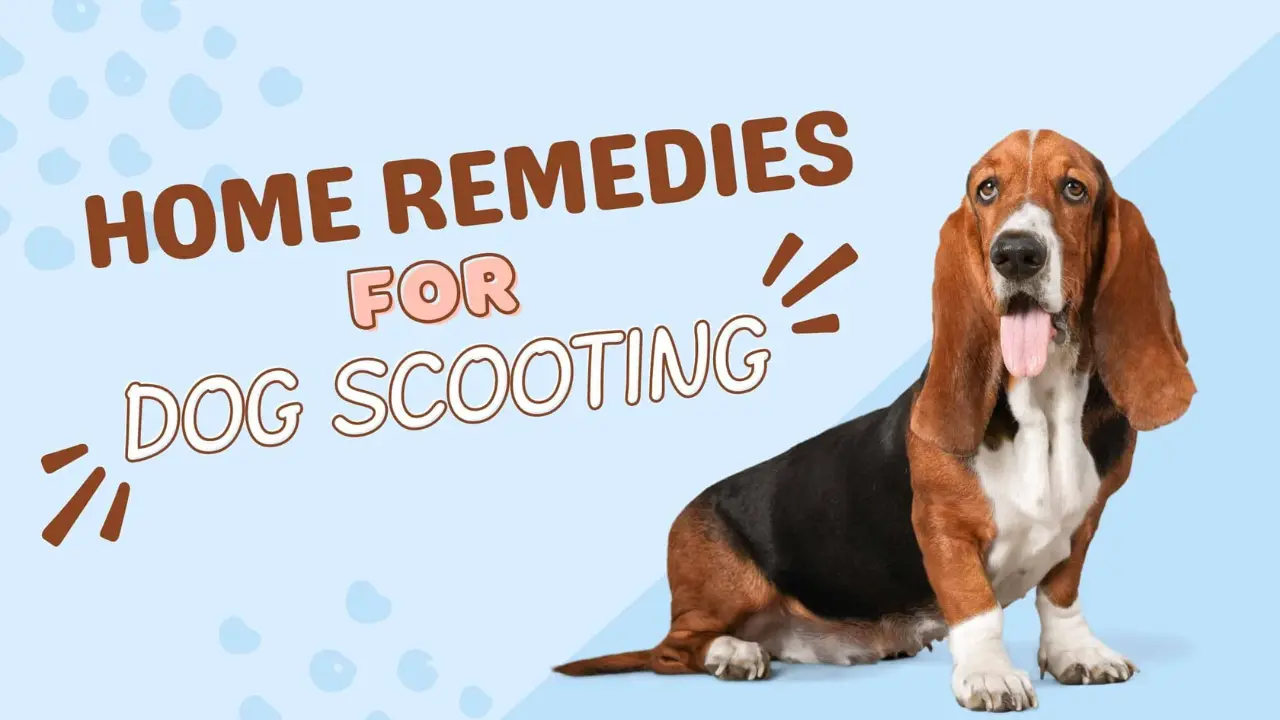Dog scooting, or dragging one’s bottom along the ground, can be unsettling for your pet and may point to a deeper problem. Even though you should see a veterinarian for a proper diagnosis, you can try some home remedies to stop your dog from scooting. In this article, we will explore various home remedies for dog scooting, ensuring your dog’s comfort and overall health.
Understanding Canine Hurrying
Canine hurrying is many times an indication of distress or disturbance around the butt-centric region. Several things, such as problems with the anal gland, allergies, digestive issues, or foreign objects, can bring it on. For an accurate diagnosis, observing your dog’s behavior, looking for signs of irritation, and consulting a veterinarian is essential.
Several things, including the following, can cause dog scooting:
- Butt-centric organ issues: Scooting can occur when anal glands are damaged or infected.
- Allergies: Unfavorably susceptible responses to food, ecological variables, or parasites can cause tingling and hurrying.
- Problems with the digestive system: Scooting is a sign of digestive issues like diarrhea or constipation.
Presence of unfamiliar items:
The presence of aggravations or unfamiliar items around the butt-centric region can cause uneasiness. The Importance of a Veterinary Diagnosis Although home remedies may provide brief relief, a veterinarian’s precise diagnosis is essential. Your dog’s scooting can be traced back to an underlying condition and can rule out more severe conditions.
Home Solutions for Canine Hurrying
Here are a few home cures that might assist with easing your canine’s hurrying inconvenience:
4.1. Expression of the Anal
Gland Regular expression of the anal gland can assist in preventing infection or impaction. However, to ensure proper technique and avoid injury, it is essential to consult a veterinarian or a professional groomer. They can either carry out the procedure for you or show you how to express the anal glands safely.
4.2. Legitimate Cleanliness and Cleaning
Keeping up cleanliness around the butt-centric region is urgent. Use warm water, a soft cloth, or mild, pet-friendly wipes to clean the area gently. Chemicals and harsh soaps should be avoided. Cleaning regularly can help ease itching and discomfort.
4.3. Dietary Modifications
In some instances, dietary modifications may be advantageous. For suggestions on dog food that is suitable, consult your veterinarian. They might recommend changing to a hypoallergenic or restricted fixing diet to address potential food sensitivities that could add to the hurrying behavior.
4.4. Increasing the Fiber in the Dog’s Diet
Increasing the fiber in your dog’s diet can help with constipation or diarrhea and promote healthy bowel movements. Talk to your veterinarian about how much yarn to give and where to get it, like from canned pumpkin or psyllium husk.
4.5. Customary Activity and Weight The executives
Daily activity keeps a solid weight and advances legitimate entrail capability. Make sure your dog gets enough exercise by exercising regularly. A healthy weight management plan should be discussed with your veterinarian if your dog is overweight.
4.6. Avoiding Irritants and Allergens
Look for and eliminate any potential allergens or irritants in your dog’s environment. This can incorporate changing to hypoallergenic bedding, utilizing aroma-free clothing cleansers, and avoiding being open to referred-to allergens, like specific plants or synthetic substances.
When to Seek Veterinary Assistance
Although home remedies can alleviate mild cases of scooting, the following circumstances necessitate seeking veterinary assistance:
- Despite using home remedies, the scooting continues or gets worse.
- Your dog exhibits signs of distress, discomfort, or pain.
- Around the anal region, there are apparent indications of infection, swelling, or bleeding.
- Your canine encounters extra side effects like heaving, the runs, or loss of hunger.
Conclusion
Your dog may experience discomfort due to dog scooting. Even though home remedies may provide brief relief, seeing a veterinarian for a precise diagnosis and the most effective treatment is essential. You can help improve your dog’s comfort and well-being by addressing the underlying causes and following the advice of a veterinarian.

